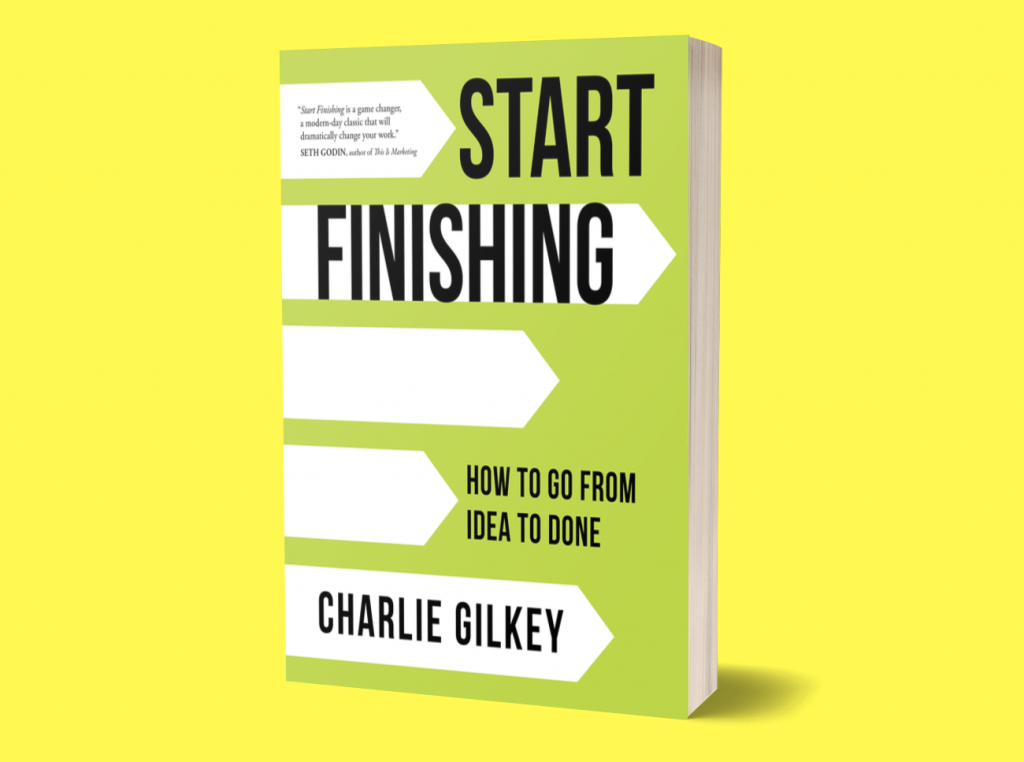On Getting Your Ideas Done

On pages 57 and 58 of his new book, Start Finishing: How to Go From Idea to Done, newly-minted author and productivity expert, Charlie Gilkey, shares a story about his Father that is both heart-rending and cautionary.
Charlie’s Dad, now nearly 80 and battling dementia, had always been a “brilliant and industrious jack-of-all-trades.” The evidence of his industriousness and ambition—the rusting metal, decaying wood, and fraying rubber, vinyl and plastic from machines he once promised to restore to bygone glory, is strewn haphazardly across an acre lot, now left for his children to reckon with.
“Even now, on bad days,” Charlie writes, “he thinks about all that stuff and how he’s going to get to those projects. How much of his soul is tied up in things he’ll never get to?”
That last line hit me hard.
As a creative and ambitious person, I can see myself in Charlie’s Dad. And because the older I get, the swifter the sands of time seem to slip through my fingers, I wonder… What ambitions do I harbor still? What stuff is my soul tied up in? What do I need to let go off in order to make space for what matters most?
Charlie calls this letting go “displacement” and it’s obvious why. Adding something to your plate should displace something else on said plate, but all too often we pretend that this is not the case. Maybe it’s because displacement requires too much thought, too much introspection, too much subtraction. It feels wrong every step of the way to simply let loose our grip on our beloved “stuff”, so why not keep painlessly adding, instead?
But “displacement is your friend (after it’s your enemy)”, Charlie notes.
“The more years I spend on this planet, the more I see that we need the constraint of finite time for the meaning making that matters most to us,” he explains.
I love the way Charlie’s ideas dance freely between the realms of spiritual consideration and the more practical, tactical concerns of the physical plane we inhabit, where ideas aren’t just conjured, they must be manifested in a world full of friction.
That’s why I think many people will find part one of the book especially powerful. In a world awash in productivity principles and project planning tactics, what we need is a guide like Charlie, a student of philosophy and a former Army lieutenant and logistics officer during operation Iraqi Freedom; someone to help us combine all our seemingly disparate, visionary parts into a unified and cohesive plan of action that points to our true north.
Amidst a plethora of refreshing productivity insights and invaluable nuggets of actionable advice, Start Finishing is at its finest when it teaches us how to clear the decks and keep them unencumbered so that we can have room for our best work.
If you’re ready to start producing the work—the gift—that only you can provide to the world, let this book be your trusted reference guide.
And, as Charlie says, may someday be today.
